Africa Centre of Excellence in Coastal Resilience |  University of Cape Coast
University of Cape Coast
Image
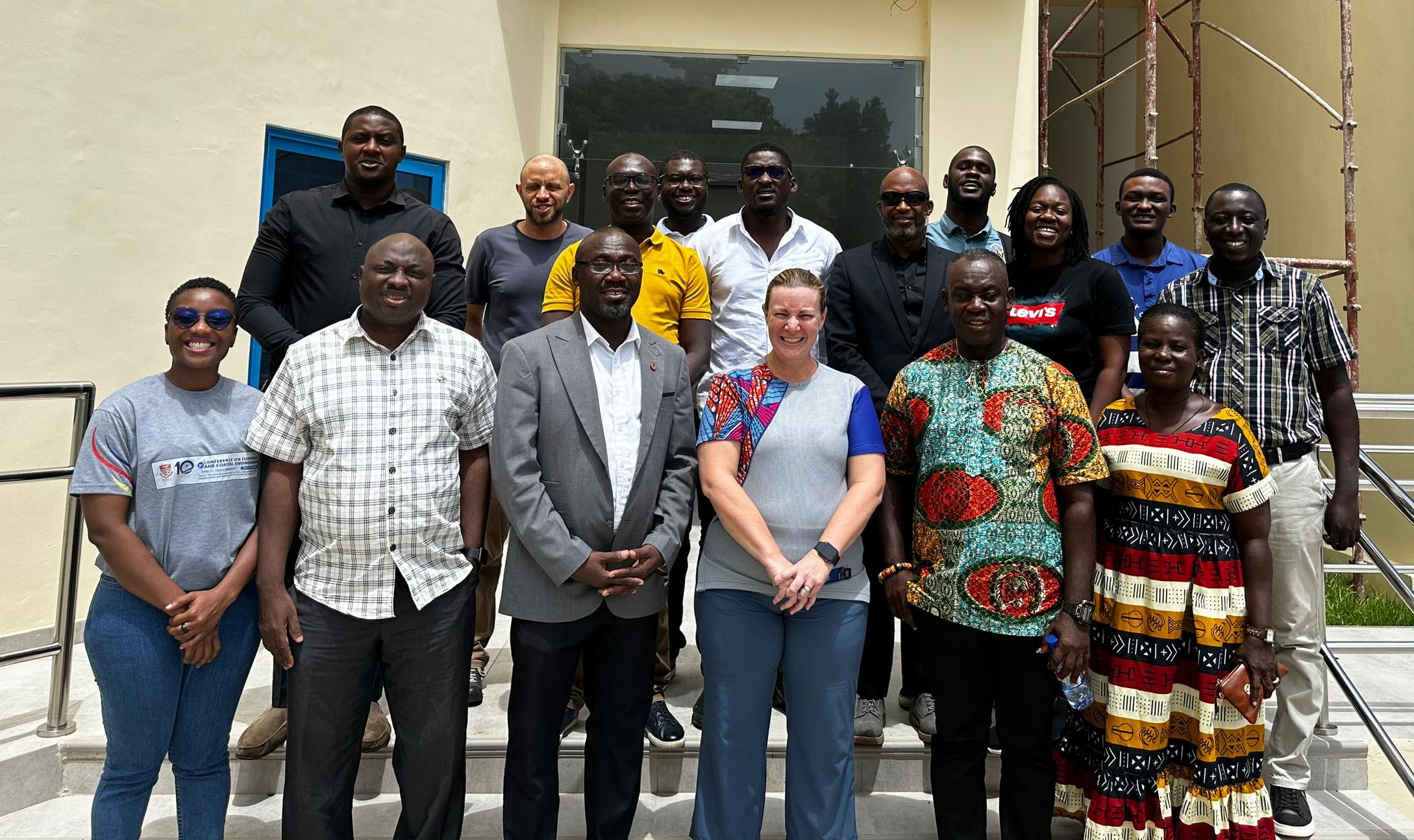
Posted On
Friday, May 24, 2024 - 17:26
Body
On May 23, 2024, the United States Embassy's Regional Environment Office for West and Central Africa led by Mrs. Cherice Siebert visited the Africa Centre of Excellence in Coastal Resilience (ACECoR) as part of their ESTH LES Regional Workshop.
The team was warmly received by the management and staff of the Centre and addressed by the Centre director, Professor Denis Worlanyo Aheto. In his address, Prof. Aheto expressed gratitude for the visit and gave a brief overview of the activities of the Centre, citing 402 scholarships awarded so far for MPhil, PhD, and short courses, 36 projects implemented in partnership with local and international institutions, 150 research output since 2019, and 35 partners. He also allowed the staff of the Centre to briefly add on with details of the activities of the Centre in various areas.
Mrs. Sika Abrokwah, a research fellow and grants manager at the ACECoR, delivered her presentation on the center's activities with regard to plastic pollution assessment, emphasizing the importance of dealing with plastic pollution in our environments through capacity building. She mentioned and indicated the significance of various activities, including the development of a short course on marine litter assessment in partnership with UKAID through Cefas, the Nippon Foundation Ocean Litter Project, the Marine Litter Network, the Beach Litter Survey with DTU Aqua, the collection of data on Abandoned, Lost or Otherwise Discarded Fishing Gear (ALDFG), and a host of others. To support research, Mrs. Abrokwah also mentioned that the Centre, in partnership with Cefas UK, was working assiduously to furnish the new marine litter lab to contribute to finding a lasting solution to the marine litter problem in our seas.
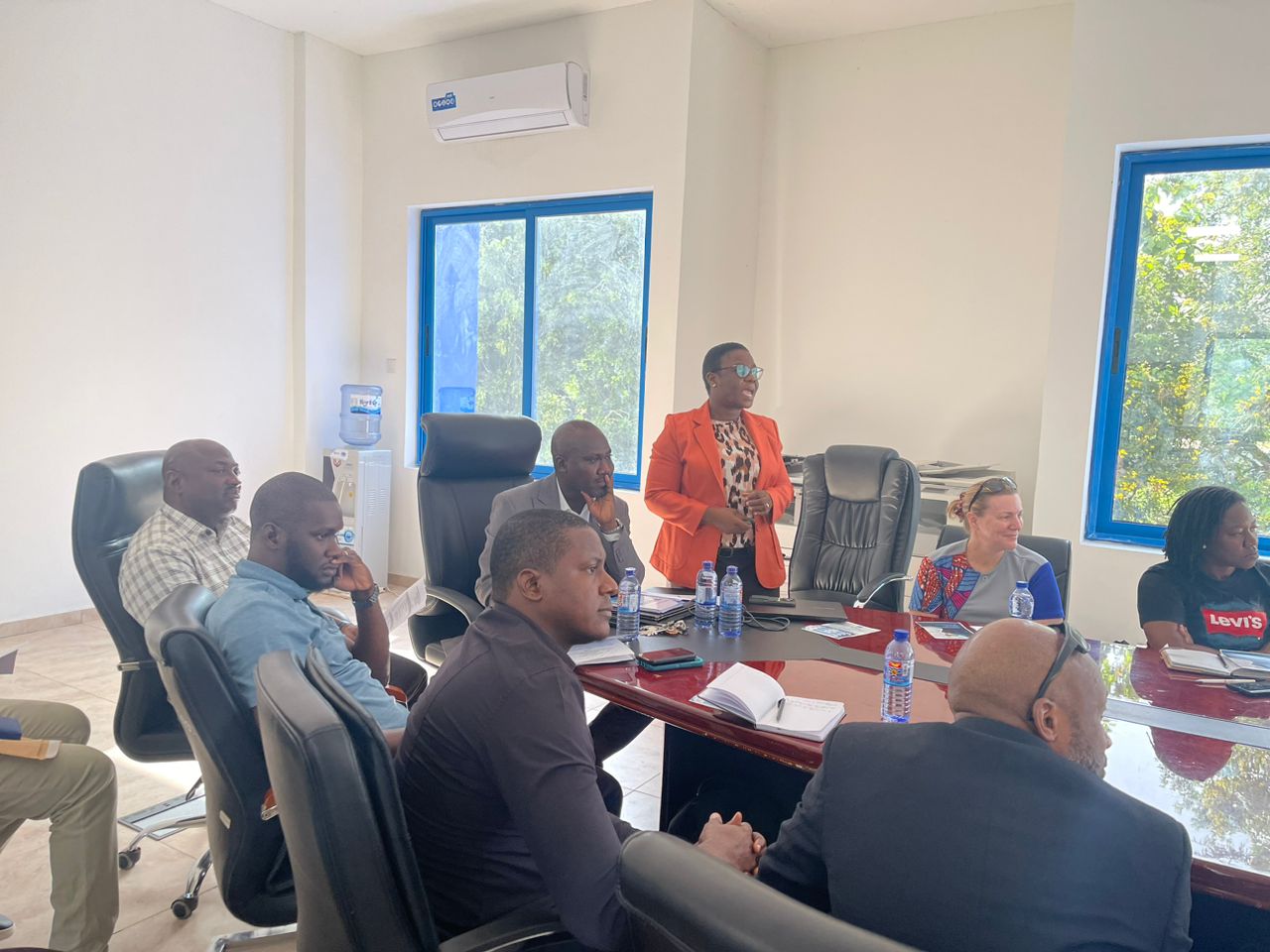
Dr. Donatus Angnuureng, the theme lead for Coastal Geomorphology and Engineering at ACECoR, also delivered a presentation, discussing issues surrounding the coastline and how the center is contributing to dealing with them. He explained that the coastlines are eroding due to waves, tides, topography, and sea level rise, as well as some coastal hazards such as flooding and storm surges. He concluded by outlining the center's efforts to address some of the issues and suggesting an integrated approach that combines nature-based solutions with hard engineering.
The importance of mangroves, which are essential to the coasts, was highlighted by Mr. Joshua Adotey, Monitoring and Evaluation Officer. He explained how they protect coastal communities from floods and other hazards, but unfortunately, their exploitation for various purposes has led to their decline. He emphasized the center's role in mangrove restoration projects, as well as the need for the government to work towards getting mangrove forests gazetted.
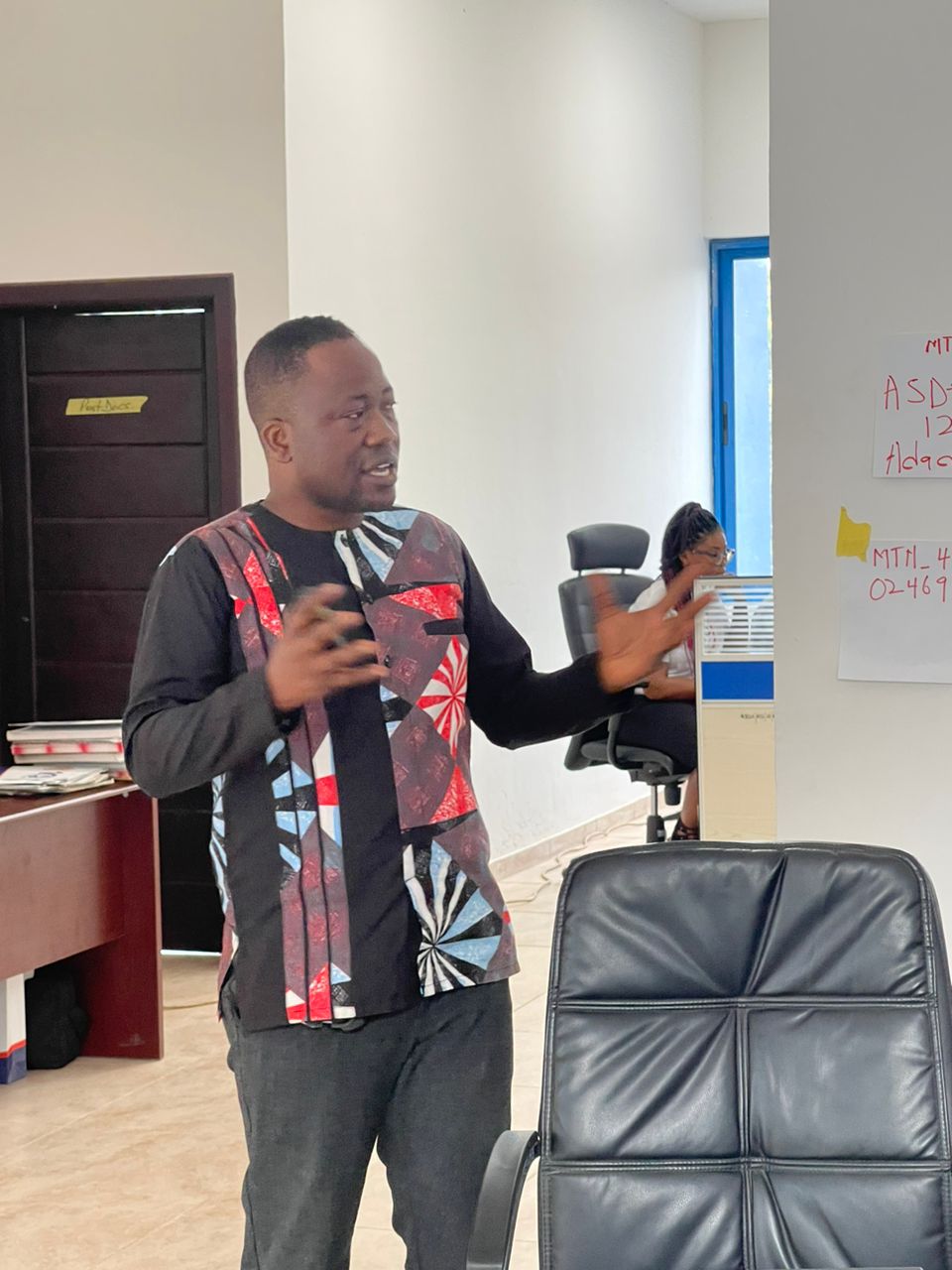
Gender equality, a sensitive subject area is of importance to the Centre and Ms. Ivy Gyimah Akuoko left no stone unturned in speaking about the Centre's efforts in promoting and ensuring gender equality. Instances of the student's admission process and staff employment and student support were given, which excited the whole team.
The Centre launched the Regional Oceans and Coastal Data Hub (the ROC) on May 7, 2024, under the leadership of Dr. Emmanuel Acheampong, to collect, store, and make marine and ocean data accessible to everyone. The portal will provide data on spatial variation within different aquatic systems and sites across Africa, as well as seasons and years. It would also explore different forms of data, including species-specific information, fish catch statistics, trends in global change factors, and raw data on marine organisms, environments, and stakeholders. The presentation of the ROC was crucial due to its relevance to the work of the Environment Officers representing the US Embassies in countries along the Gulf of Guinea.
Representatives from the fishermen and fishmonger groups in Elmina were also present to share their experiences and opinions on some of the ocean and marine resource exploitation issues. The visit ended with a visit to Anlo Beach in the western region of Ghana to gain a practical understanding of their discussions since the beginning of the workshop.
Mrs. Siebert expressed gratitude to Prof. Aheto for receiving her team and giving them more insights into the significance and issues of the coastal environments and stated that she looked forward to more collaborations and Partnerships with ACECoR.

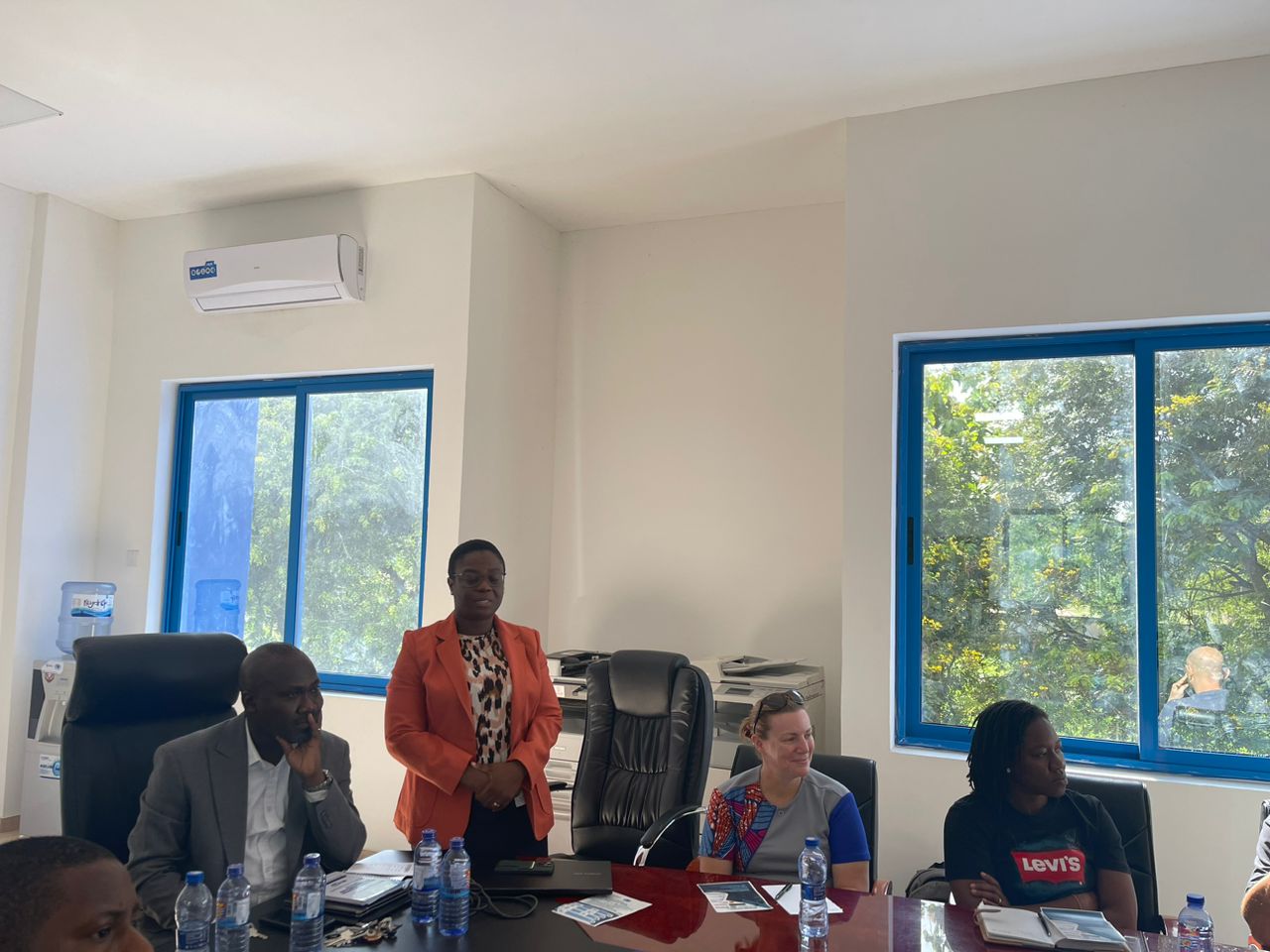
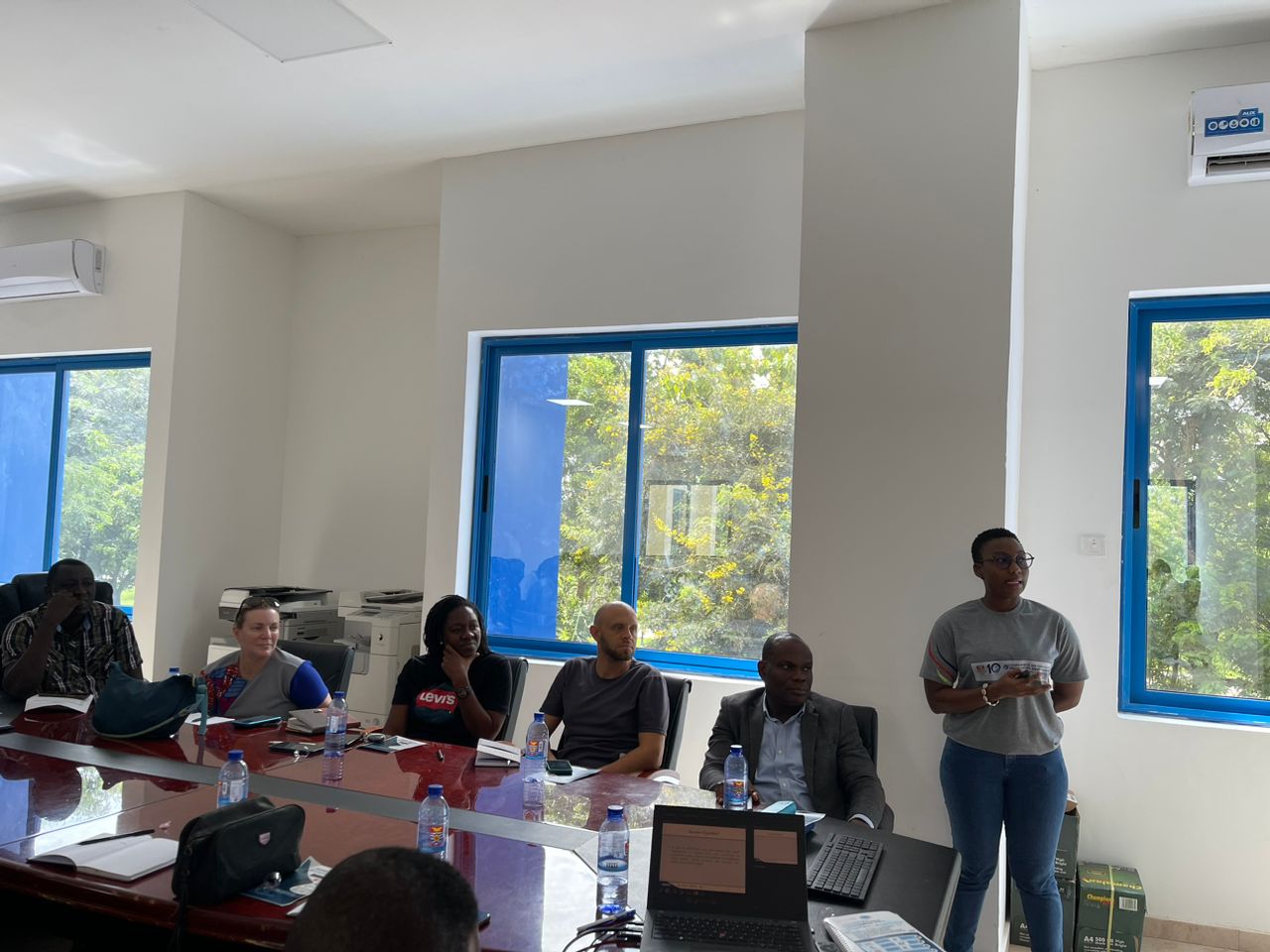


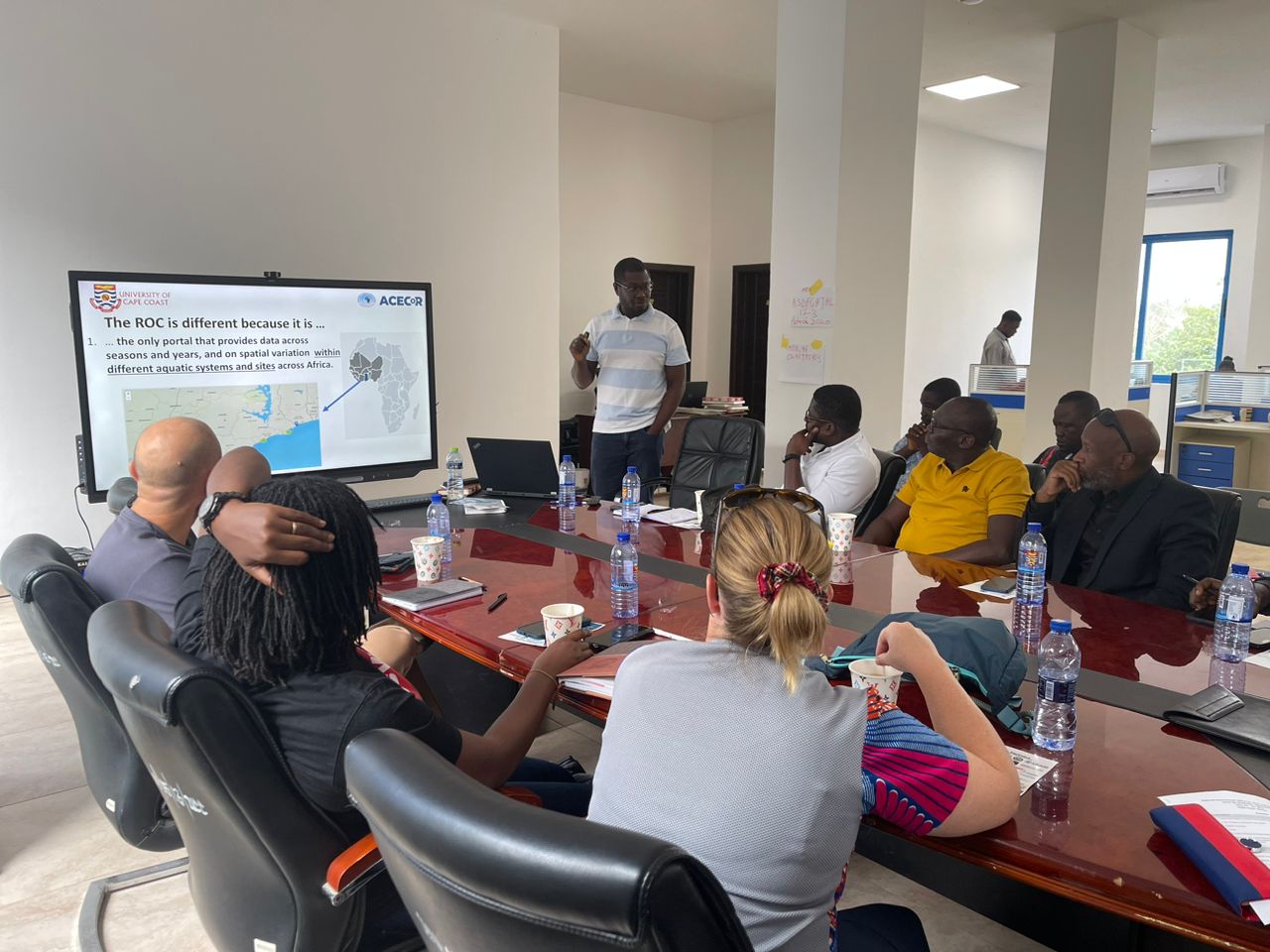
Last modified
